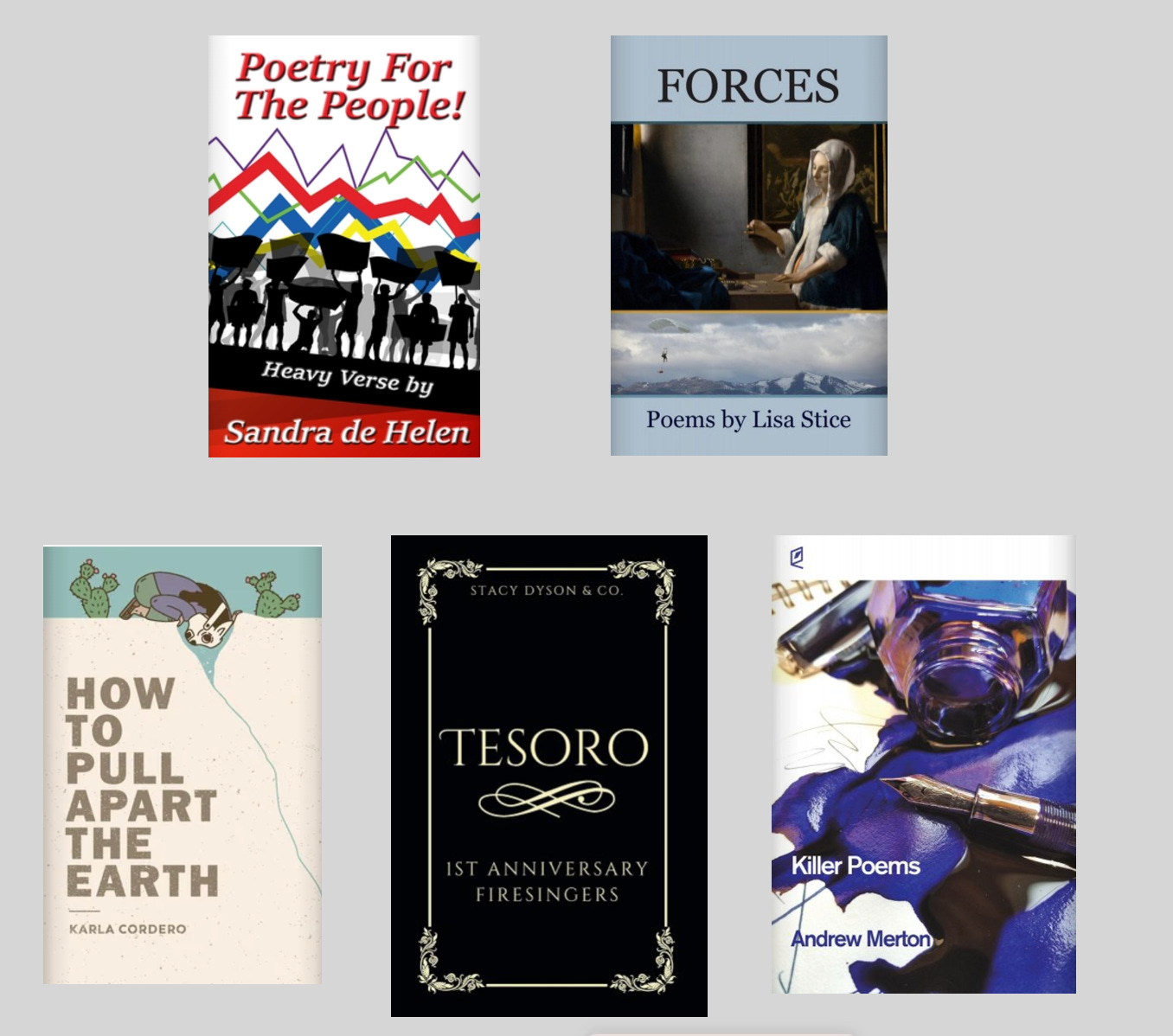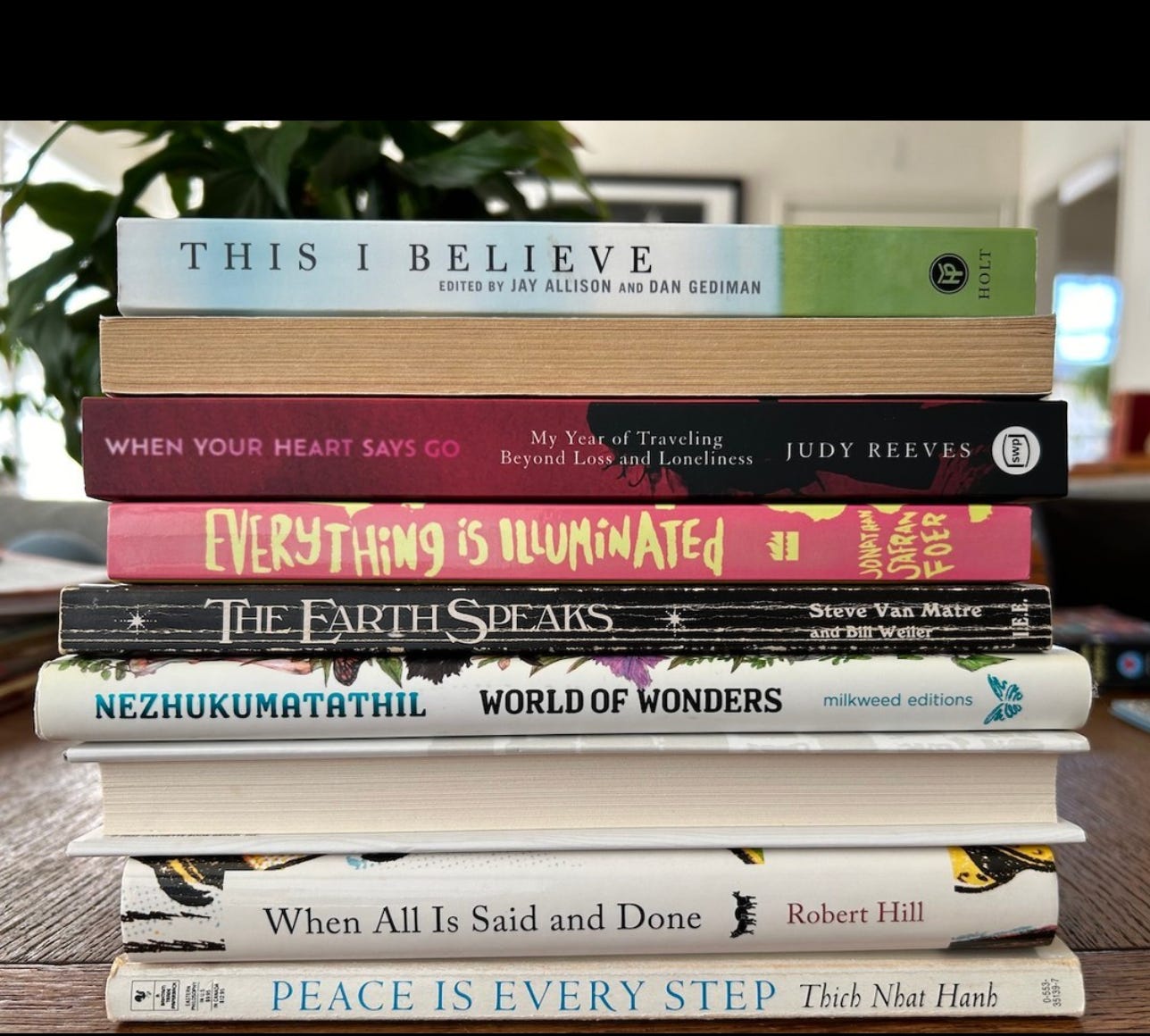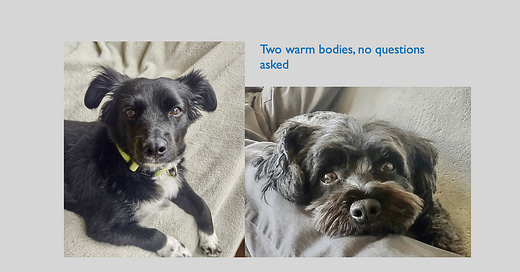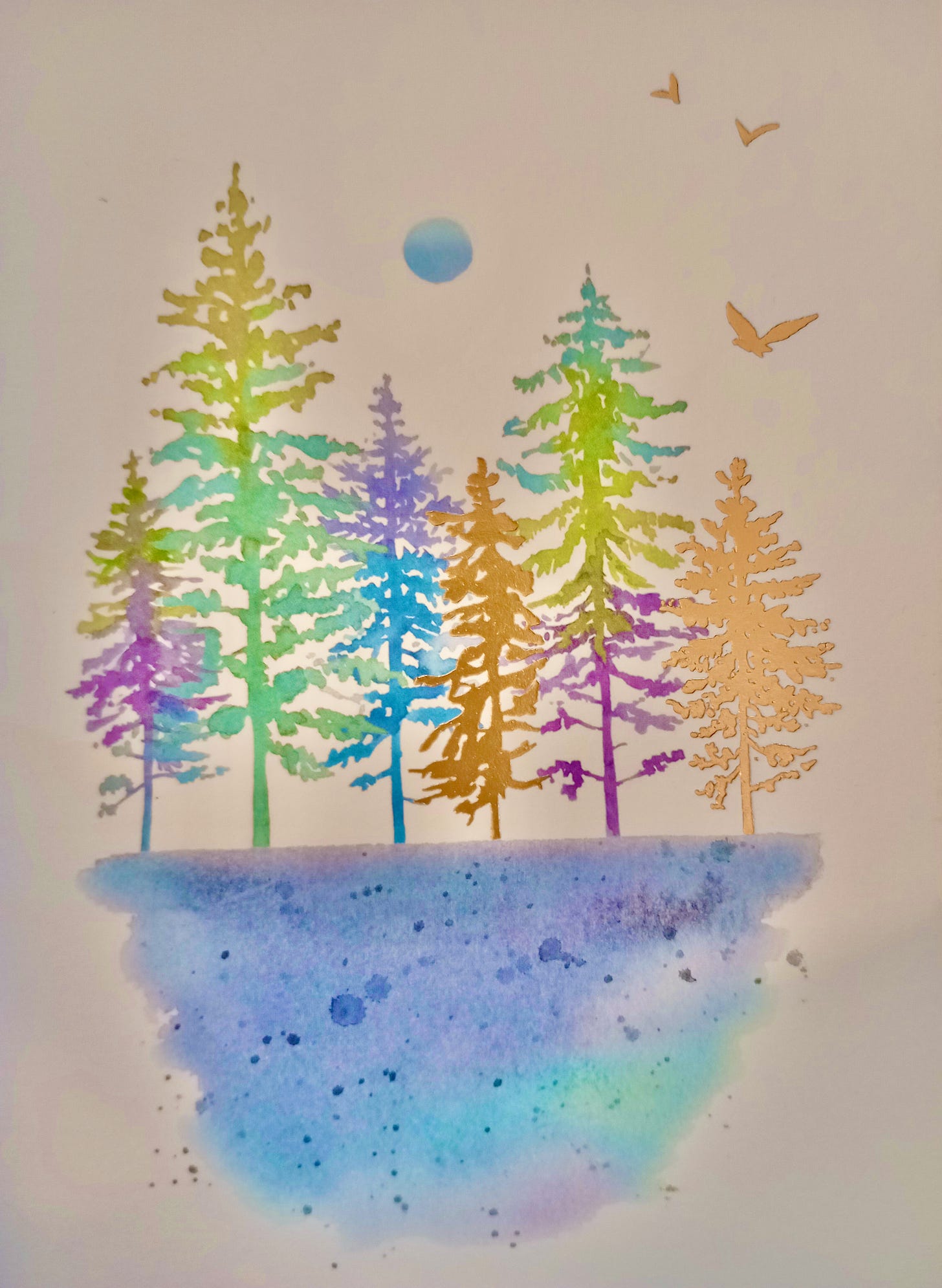Before we begin…
How has hope played a role in your life even this past week? Are you one of those who wonders if hope is indeed one of the things that makes us human? In other news, what poem have you read and loved most recently? Can you share a line or thought from it that stayed with you?
Welcome! You’ve reached Spark. Learn more here or just read on. If you received this from a friend, please join us by subscribing. It’s free! All you have to do is press the button below. And if this email is truncated in your inbox, just click the headline above to come on through and read everything all at once.
First, thank you
Thank you to Ron H. and three new paid subscribers who wish to remain anonymous. Your support means so much to this writer.
And now, two poems…
Wants by Lisa Miller
What the mind wants: Better maps. Bottled water, batteries, matches. Strong rope. A hammer. A chart of high-water marks. The mind wants to be prepared. What the heart wants: Broken pottery that once graced a shelf in Tuscany. Holy relics stolen from an abandoned church. Everything to come home: lost dogs, messenger pigeons, honeybees. The code to unleash shooting stars. The heart wants to tell ghost stories. - Lisa Miller
The Peace of Wild Things by Wendell Berry
When despair for the world grows in me And I wake in the night at the least sound In fear of what my life and my children’s lives may be, I go and lie down where the wood drake Rests in his beauty on the water, and the great heron feeds. I come into the peace of wild things Who do not tax their lives with forethought Of grief. I come into the presence of still water. And I feel above me the day-blind stars Waiting with their light. For a time I rest in the grace of the world, and am free. - Wendell Berry
Why these?
I’ve been distracted all week by a sudden increase in brain-noise that wakes me around four in the morning and persists until about six or seven when daylight breaks through the edges of our black-out shades. Maybe it’s my age. Maybe it’s the news. Maybe it’s my own mind running where it will because it knows I can’t go anywhere at that hour to get away from it.
I’m aware that even as I’ve been dealing with the reality of grief, I am feeling anticipatory grief – a way of preparing myself for losses to come in my close circle of loved ones, and in the world at large.
Relief comes when our two dogs climb into bed with us and spoon for the last half hour or so before rising for the day. The press of their small solid bodies crowds out the distress of my early-morning nightmares. Their ability to abandon themselves to another hour or so of sweet sleep reminds my body, and my mind, to let go.
Biologically, I suppose the touch of my dogs releases a small flood of oxytocin. I don’t care about the mechanism, I just want to be able to get up believing a little more in the world and in myself and somehow, they help.
So do the right words at the right time. Last month, in the small tide of sympathy notes that arrived in the wake of my brother’s death, I received this card from Lisa Miller, journalist, teacher, poet and a long-time friend.
Tucked into the card was one of her poems in progress, Wants, that mirrored the conflict that exists between my own brain and heart. The other was Wendell Berry’s The Peace of Wild Things which reminds me all over again that anticipatory grief for the state of the world is universal but that relief can be found, at least for a little while, when we let nature touch us.
I’ve always thought of myself as optimistic but optimism implies not just hope but confidence in the future. Lately, my confidence has been wavering. It could be temporary - after all pretty much everything is – but for the moment I must rely on hope. This is perhaps why these words by poet Claudia Rankine, from her book, Don’t Let Me Be Lonely: An American Lyric, and the line from Emma Straub’s novel, This Time Tomorrow, resonate with me.
“Maybe hope is the same as breath - part of what it means to be human and alive." Claudia Rankine, Don't Let Me Be Lonely
“Happy endings were too much for some people, false and cheap, but hope– hope was honest. Hope was good.” - Emma Straub, This Time Tomorrow
To have hope could be as natural and essential as breathing but it doesn’t come with any promises. It’s enough to get me out of bed in the morning, though.
What about you? Tell me about your relationship with hope or perhaps a poet whose words have reached you at the right time.
If you like what you see or it resonates with you, please share Spark with a friend and take a minute to click the heart ❤️ below - it helps more folks to find us!
More poetry to close out National Poetry Month
A couple of years ago I confessed how, for years, I did not seek out poetry. I chased the prose of novelists or essay writers. It wasn’t until I made a conscious decision to read more poetry that I understood more fully what I’d been missing.
For National Poetry Month, I thought it might be nice to share once again some of the poems and poets who have helped to open the door to their world to me. These three posts from April 2021 feature the poems of Lisa Stice, Andrew Merton, and Karla Cordero who also shared with us poets and work that they love.
Lisa Stice, “A Lesson in Leaving”
Andrew Merton, “Climate Change”
Karla Cordero, “Where I Inherit My Silence”

This is also a great time to revisit the interview we did with poet Stacy Ardis Dyson, founder of Tesoro, an international organization dedicated to raising the voices of women poets around the world, and author of the books, Follow Me on This, and Lovely and Suffering, and editor of the athology, Tesoro.
And check out this essay by poet, playwright, novelist Sandra de Helen wrote about the books that influenced her.
Welcome New Subscribers!
If you’ve just subscribed, thank you so much for being here. If you would like to check out past issues, here’s a quick link to the archives. Be sure to check out our Resources for Readers and Writers too where you will find links for readers, book clubs, writers, and writing groups. And if you’d like to browse for your next read, don’t forget to check out books by authors in our community at the Spark Author Page which will be updated with new names and books for next week’s issue. Another great source: the many wonderful reviews you’ll find among the #Bookstackers.
The more the merrier! Please share with your friends and invite them to join us!
And if you’d like to put your money to good work…
Consider a paid subscription ($5/month or $35/year) or use this as a link that will allow single contributions of any amount via PayPal.
There will be no paywalls. All subscribers will still have access to every post, archives, comments section, etc. If finances are an issue (and when are they not?), you can still show your support for Spark by participating in our conversations, “liking” a post by hitting that heart, and by sharing Spark among your friends. All of these things help bring new subscribers into the fold and every time we expand our audience, the conversation grows and deepens. Click below for more info.
Let me know how you are and what you’re reading. If there’s an idea, book, or question you’d like to see in an upcoming issue of Spark, let us know! Use the comment button below or just hit reply to this email and send your message directly.
And remember, If you like what you see or it resonates with you, please take a minute to click the heart ❤️ below - it helps more folks to find us!
Ciao for now!
Gratefully yours,
Betsy
P.S. And now, your moment of Zen…spine poem by Judy Reeves
I stole this from Judy’s Instagram feed because it was exactly the right way to end this post

Calling for Your Contribution to “Moment of Zen”:
What is YOUR moment of Zen? Send me your photos, a video, a drawing, a song, a poem, or anything with a visual that moved you, thrilled you, calmed you. Or just cracked you up. This feature is wide open for your own personal interpretation.
Come on, go through your photos, your memories or just keep your eyes and ears to the ground and then share. Send your photos/links, etc. to me by replying to this email or simply by sending to: elizabethmarro@substack.com. The main guidelines are probably already obvious: don’t hurt anyone -- don’t send anything that violates the privacy of someone you love or even someone you hate, don’t send anything divisive, or aimed at disparaging others. Our Zen moments are to help us connect, to bond, to learn, to wonder, to share -- to escape the world for a little bit and return refreshed.
I can’t wait to see what you send!
And remember, if you like what you see or it resonates with you, please share Spark with a friend and take a minute to click the heart ❤️ below - it helps more folks to find us!






love your thoughts so much, Betsy. I can't even begin to articulate my feelings on the necessity for hope so I'll quote Lady Bird Johnson instead:
"Where flowers bloom, so does hope - and hope is the precious, indispensable ingredient without which the war on poverty can never be won."
One of the books that gave me the most comfort during the dark days of the pandemic was Rebecca Solnit's Hope in the Dark. It's a beautiful meditation on hope. If despair is the belief that tomorrow will be exactly like today, hope is the belief that things could be different. Things could change and hopefully for the better. It's not a naive belief that things could get better. People have hope in some pretty horrible actual life situations. But hope is a belief. After all, no one knows what will happen tomorrow. But hope is a conscious decision. It's a way to live in the world. I don't want to surrender to despair. I choose hope.
Also, I don't know how you can pick up a pen or sit down at a computer to write if you don't have some hope. Writing is one of the most hopeful things we do.